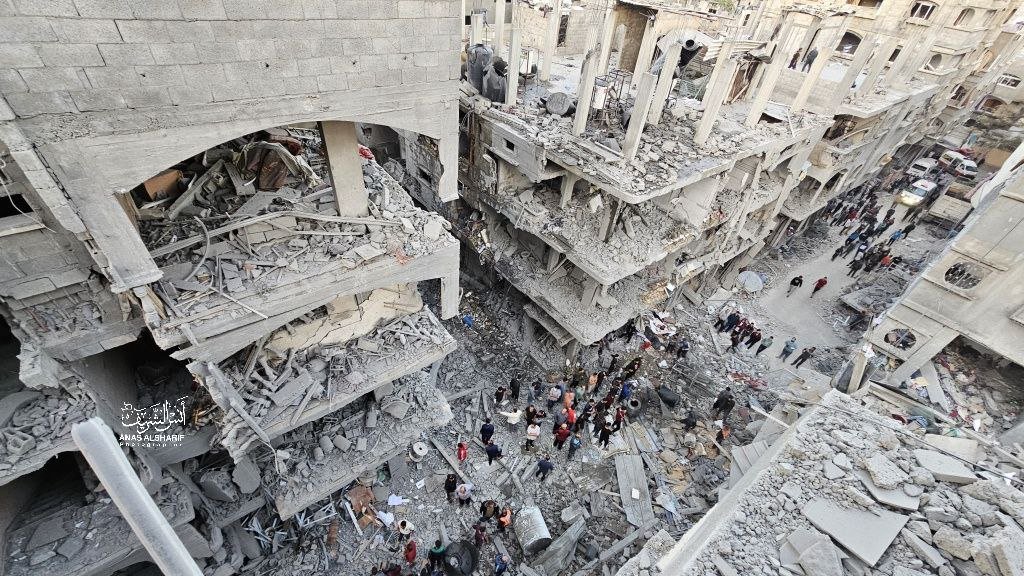An official familiar with the talks also noted Israel also showed a willingness to deliver medicine to Palestinians in Gaza.
Qatar is reportedly in “high-level discussions” with Hamas over the delivery of prescription medicine to Israeli captives in Gaza, while making progress with Israel over the entry of medicine for Palestinians in the Strip, officials told The New York Times on Thursday.
The reported development came following a meeting between Qatar’s Prime Minister and Foreign Minister Sheikh Mohammed bin Abdulrahman Al-Thani with six families of American and Israeli captives—first reported by Axios on January 6.
The meeting came as part of Qatar’s diplomatic efforts to secure the release of captives from Hamas in Gaza, which come under its wider attempts at reaching a lasting ceasefire.
Doha and Cairo had mediated a temporary truce between November 24 and December 1 following two extensions. The pause saw the release of at least 110 Israeli and foreign captives from Gaza as well as 240 Palestinian women and children from Israeli prisons.
In its recent report on the talks, NYT reported that the delivery of prescription medicine to the remaining 120 captives came in the meeting between their families and the Qatari prime minister.
An anonymous official privy to the talks confirmed the meeting to NYT, saying the discussions involved the quantity and types of medicines needed as well as ways to deliver them. The official added that discussions were underway with international organisations on the medicines’ delivery.
The official that is familiar to the talks also noted Israel also showed a willingness to deliver medicine to Palestinians in Gaza.
Husam Badran, a senior Hamas official, told The Times via text that the group was discussing the matter “with great positivity.” A senior Israeli official, who spoke on the condition of anonymity, confirmed the matter, reported progress on the talks.
The International Committee of the Red Cross (ICRC) had helped facilitate the exchange of the captives from Gaza and Palestinian detainees from Israeli prisons under the previous pause.
Jason Straziuso, a spokesman for the International Committee of the Red Cross, told NYT that “the most critical step is that the medicines get into the hands of those who need it”.
“In a humanitarian initiative, ICRC teams have been urging the parties and those who have influence to get medicines delivered to the hostages,” Straziuso said.
An Israeli delegation reportedly landed in Cairo on Monday to resume negotiations aimed at releasing Israeli captives after Egypt reportedly suspended its participation in talks following the killing of senior Hamas official, Saleh al-Arouri, in Lebanon.
Gaza’s collapsed health sector
Israel’s genocidal war on Gaza has neared 100 days, killing 23,469 Palestinians and wounding 59,604 others, according to the latest Gaza government figures.
The war has displaced more than two million of Gaza’s population without a shelter above their heads and little resources to survive, especially with the complete Israeli siege.
Doctors in Gaza have been running around the clock to treat tens of thousands of wounded Palestinians inside the collapsed medical sector.
The health sector has been significantly damaged by the non-stop bombardment and complete siege on the Strip, with only 15 out of 36 hospitals partially functioning.
Inpatient departments’ occupancy rates reached 206% whereas the intensive care units reached 250%, the United Nations said in its flash update on Wednesday.
On Sunday, Gaza’s government said 6,000 wounded Palestinians require urgent evacuation for treatment in neighbouring Egypt.
Medical and food aid has barely reached any of Gaza’s 2.2 million population, with truckloads of assistance piling up in Egypt awaiting the green light to cross into the Strip.







